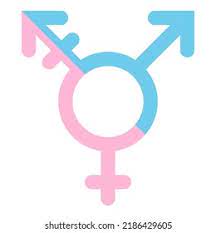The journey of being a person assigned female at birth (AFAB) who identifies as male can be both transformative and complex. FTM (female-to-male) men navigate a unique path toward self-identity, acceptance, and societal recognition. This article aims to provide insight into the experiences of FTM men, touching on various aspects of their journey including transition, hormone therapy, community support, and more. Whether you’re an FTM man, a friend, or simply curious, there’s something here for everyone.
Understanding FTM Men: A Quick Intro to the Journey
FTM men come from diverse backgrounds and have varied experiences that shape their identities. The journey often begins with self-discovery, where individuals start to realize that their gender identity does not align with the sex they were assigned at birth. This realization can be both liberating and daunting, as it may involve confronting societal expectations and personal fears. Understanding FTM men means recognizing that their identities are valid and deserving of respect, regardless of whether they pursue medical transition or not.Is It Gay To Fuck A Trans GirlFtm Testosterone Pills
The journey doesn’t stop at self-discovery; it often extends into a broader exploration of what it means to be an FTM man. This can include understanding masculinity, navigating societal perceptions, and finding ways to express their true selves. For many, this journey is about authenticity and living life as they feel most comfortable. Each story is unique, and the path can vary greatly from person to person, highlighting the importance of empathy and support throughout this process.
The Transition Process: What to Expect as an FTM Man
The transition process for FTM men can involve a variety of steps, including social, medical, and legal changes. Social transition might mean changing one’s name, pronouns, and wardrobe—sometimes even altering one’s behavior to align more closely with their gender identity. It’s often the first step many take, as it allows them to present themselves in a way that feels authentic while navigating their social circles and workplaces.
Medical transition typically includes hormone therapy, surgeries, or both, but this is a highly personal choice that varies from person to person. Some may choose to undergo top surgery to remove breast tissue, while others might opt for genital surgery. It’s essential to have realistic expectations about the transition process, as it can take time and may not yield the immediate results some hope for. Support from healthcare providers, friends, and family can significantly ease this journey.
Common Myths About FTM Men Debunked: Let’s Set the Record Straight
One prevalent myth about FTM men is that they are simply confused or going through a phase. This misconception undermines the profound reality that many FTM individuals experience a deep-seated sense of dysphoria concerning their assigned gender. Gender identity is not a trend or a fleeting thought; it’s an intrinsic part of who someone is. Recognizing and validating these feelings is essential to fostering understanding and acceptance.
Another common myth is that all FTM men must undergo surgery or hormone therapy to be considered "real" men. This notion is harmful and dismisses the many ways individuals can express their gender identity. Gender is not strictly defined by physical characteristics; it’s about how someone identifies and experiences the world. It’s crucial to challenge these stereotypes to create a more inclusive environment for all gender identities.
FTM Hormone Therapy: What You Need to Know
Hormone therapy is a significant aspect of many FTM men’s transition journeys. Typically, this involves the administration of testosterone to induce physical changes such as deepening of the voice, increased body hair, and redistribution of fat. Before starting hormone therapy, it’s essential to have a thorough consultation with a healthcare professional who understands transgender healthcare. This ensures that individuals receive proper guidance, monitoring, and support.
Starting hormone therapy is often accompanied by a range of emotions, from excitement to anxiety about the changes to come. It’s important to understand that changes occur gradually and can differ from person to person. Some people may experience changes sooner than others, and that’s perfectly normal. Understanding this can help manage expectations and reduce feelings of frustration during the process.
Finding Community: Support Networks for FTM Men
Finding a supportive community is crucial for FTM men as they navigate their transition. Online forums, social media groups, and local support organizations provide safe spaces where individuals can share experiences, ask for advice, and connect with others who understand their journey. These communities can offer validation and camaraderie, making the often solitary experience of transitioning feel less isolating.
In-person support groups can also be invaluable. Many cities now host gatherings specifically for transgender individuals, where FTM men can meet others in similar situations. These environments foster open discussions about challenges, triumphs, and everything in between, allowing for personal growth and relationship building. Engaging with a supportive community can significantly enhance one’s transition experience.
Navigating Relationships as an FTM Man: Tips and Insights
Navigating relationships—whether they be romantic, familial, or platonic—can be a complex aspect of the FTM journey. Open communication is key; talking with partners, friends, and family about identity, pronouns, and feelings can help build understanding and strengthen ties. It’s okay to take your time in sharing your journey with others; this process can be just as emotional for them as it is for you.
It’s also important to remember that not everyone will understand or accept your identity immediately, and that’s okay. Setting boundaries and prioritizing your mental health is crucial. Surround yourself with people who support and affirm your identity, and don’t hesitate to distance yourself from those who don’t. Healthy relationships are built on mutual respect, and you deserve to be around people who honor who you are.
Fashion and Style Choices: Dressing as an FTM Man
Fashion can be a powerful form of self-expression, especially for FTM men exploring their identities. Finding a personal style that feels authentic can boost confidence and help to affirm one’s gender identity. Some may gravitate towards traditionally masculine clothing, while others may prefer styles that blend elements of both masculinity and femininity. Whatever the choice, the most important factor is comfort.
Experimenting with different styles can also be a fun process. Thrift stores can be a treasure trove for finding unique pieces, and they often allow for exploration without a hefty price tag. Additionally, many FTM men find community through fashion blogs or social media accounts dedicated to trans and non-binary styles. Engaging with these platforms can offer inspiration and help you find your own fashion voice.
Mental Health Matters: Coping Strategies for FTM Men
Mental health is a critical component of the FTM journey, as transitioning can bring about a whirlwind of emotions. Many FTM men face challenges such as dysphoria, societal stigma, and familial rejection, which can contribute to anxiety and depression. It’s essential to prioritize mental well-being and seek professional help if needed. Therapists who specialize in gender identity can provide invaluable support and coping strategies.
Developing a self-care routine is also vital. Engaging in activities that bring joy—like exercise, art, or spending time with friends—can greatly enhance overall mental health. Mindfulness practices, such as meditation or journaling, can help process feelings and foster self-acceptance. Remember, it’s okay to ask for help and to take time for yourself throughout this journey.
The journey of being an FTM man is a rich tapestry woven from self-discovery, transformation, and community. By understanding the intricacies of transition, debunking myths, and embracing mental health, those who identify as FTM can better navigate their unique paths. Support networks, open conversations, and personal expression through fashion can enhance the experience, making it possible to live authentically and joyfully. Remember, every journey is unique, and it’s important to honor your own timeline and choices as you move forward.


